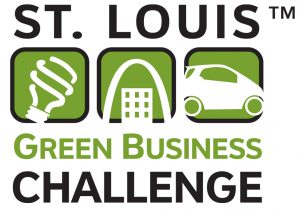Based in Bridgeton, Mo., Hunter Engineering Company is the world leader in alignment, wheel and tire service, inspection and ADAS calibration equipment. Hunter has offered 75+ years of designing and building automotive service equipment and is a certified veteran-owned business. With sustainability and environmental stewardship at the core of their culture, the company created the Hunter Green Team, which is an employee-led sustainability program that encourages team members across all sites and departments to introduce ideas to enhance sustainability, and their good work doesn’t stop there.
Hunter is the only company in St. Louis Green Business Challenge history to successfully complete three different achievement levels in three consecutive years (2016-2018). Last year, Hunter Engineering received its third esteemed title of Challenge Champion for completing work with the Leader scorecard and committing to continued implementation of deeper sustainability strategies.
“2022 was an exciting year of sustainability initiatives at Hunter Engineering Company, including proactive upgrades to our facilities and enhancements within our recycling program,” said Chip Hiemenz, Vice President of Hunter Engineering. “The St. Louis Green Business Challenge provides us with guidance and support to be a more sustainable company, resulting in economic, social and environmental benefits.”
During the 2022 Challenge, Hunter Engineering replaced over 400 fluorescent, incandescent and HID lighting fixtures with high-efficiency LED fixtures, saving an average of 80 watts per fixture and amassing nearly 35,000 total watts of energy savings. The company also created HVAC schedules to reduce energy usage by 15% utilizing a programmable thermostat, added two extra electronics recycling stations, which collected 10,251 pounds of e-waste last year alone, and continued to enforce a “no-idling” policy for vehicles loading and unloading at their shipping docks to help reduce excess carbon emissions.
To further reduce environmental impact, Hunter installed a solar energy system generating up to 1 kWh of power in their IT server room and three-layered panels in the building clerestory, doubling insulation R-value of previous panels, and also installed occupancy sensors and created lighting schedules for common areas.
Other impressive initiatives that earned Hunter Engineering recognition in the Challenge include the construction of rainwater retention systems to mitigate hard surface run-off. In doing so, Hunter now controls peak flow rates of water which fights against property damage and helps remove pollutants. Additionally, the company converted to use of Earth Wise Kraft Napkins to replace a less sustainable alternative and implemented Green Seal certified Diversey J-Fill® Stations for dispensing chemicals.
To learn more about the sustainable work underway by Hunter Engineering and ways your company can get involved in the St. Louis Green Business Challenge, subscribe to their weekly E-Newsletter or visit stlouisgreenchallenge.com. To learn more about the link between sustainability and air quality, explore our website, like us on Facebook or follow us on Twitter at @gatewaycleanair.


